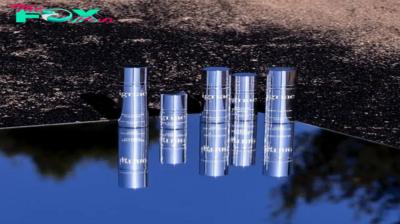Health
Here’s All You Need to Know About Vitamin C Alternatives
Me and vitamin C? It’s complicated! A boon for many and a bane for some- vitamin C has held a complicated status ever since its advent in the beauty bracket, courtesy of some of its unstable qualities. So, if you share a complicated status with the ingredient too, here we have dermatologists giving us a detailed guide to the best vitamin C alternatives.
Once a skincare ingredient enters your routine it is quite difficult to let go, and in this saturated space, one such ingredient is vitamin C. It kickstarted as a mere active ingredient, and from there on one thing led to another and the next thing we know vitamin C is everywhere! Call it a staple or a mainstay, vitamin C has been dominating skincare routines lately, but despite garnering immense popularity the ingredient has had a complicated journey in the beauty bracket. Barring the bucket full of benefits, vitamin C still find it hard to be a part of every skincare routine. While it is touted as one of the major and the most used skincare ingredients by many, it is still incompatible with a few. Sensitive skin types often find themselves in a tiff with vitamin C courtesy of some unstable elements in the same. Contrary to being a boon for many, vitamin C has turned out to be a bane for some. Since using vitamin C is not a bed of roses for all, here we have some of the best Vitamin C alternatives recommended by dermatologists themselves. Have a look and choose wisely!
Beauty experts weigh in on Vitamin C alternatives:
Inputs by Dr. Nishita Ranka Internationally acclaimed dermatologist, Medical Director & Founder of Dr. Nishita’s Clinic for Skin, Hair & Aesthetics
As a dermatologist, I understand the importance of vitamin C in skin care for its antioxidant properties, ability to boost collagen production, and its role in brightening the complexion. However, not everyone can indeed tolerate vitamin C, especially those with sensitive skin, as it can sometimes cause irritation, redness, or a stinging sensation.
Fortunately, several effective vitamin C alternatives can provide similar benefits without the potential for irritation. Here are some of my top recommendations:
1. Niacinamide (Vitamin B3): Niacinamide is a gentle yet powerful ingredient that can help improve skin texture, reduce the appearance of pores, and lighten dark spots. It’s also known for its anti-iNFLaMMAtory properties, making it suitable for those with sensitive skin or conditions like rosacea.
2. Bakuchiol: Derived from the seeds of the Psoralea Corylifolia plant, bakuchiol is often referred to as a natural alternative to retinol. It has been shown to improve skin elasticity, reduce fine lines and wrinkles, and even out skin tone without causing the irritation often associated with retinol.
3. Alpha-Arbutin: This is a stable and effective form of arbutin, a natural skin brightener derived from bearberry plants. Alpha-arbutin works by inhibiting the production of melanin, which can help fade dark spots and hyperpigmentation.
4. Ferulic Acid: Although often used in conjunction with vitamin C, ferulic acid is a potent antioxidant on its own. It can help protect the skin from environmental damage, reduce the signs of ageing, and enhance the effectiveness of other skincare ingredients.
5. Madecassoside: Derived from the Centella Asiatica plant, Madecassoside is known for its soothing and healing properties. It’s particularly beneficial for sensitive skin, helping to calm irritation and redness while promoting skin repair.
When recommending alternatives to vitamin C, I always emphasise the importance of patch testing and introducing new products gradually, especially for those with sensitive skin. It’s also crucial to use sunscreen daily, as many of these ingredients can make the skin more susceptible to sun damage. Overall, the key is to find a skincare routine that works for your skin type and concerns and to consult with a dermatologist if you’re unsure about which products are right for you.

Inputs by Dr. Niti Gaur, MD, Fellowship in Cosmetic Dermatology(Singapore, USA), Board Certified Dermatologist Founder of Citrine Clinic, Gurgaon
As a dermatologist, I understand that while vitamin C is a potent antioxidant with numerous skincare benefits, not everyone’s skin can tolerate it due to sensitivity or other reasons. In such cases, exploring alternative ingredients that offer similar benefits can be beneficial for maintaining skin health and addressing specific concerns.
Here are some of the best alternatives to vitamin C that can provide antioxidant protection and other skincare benefits:
Niacinamide (vitamin B3):
-Benefits: Niacinamide is a versatile ingredient known for its anti-iNFLaMMAtory and brightening properties. It helps improve the skin’s barrier function, reduces redness, minimises pore appearance, and boosts collagen production.
– Why It’s a Good Alternative: Niacinamide is well-tolerated by most skin types, including sensitive skin. It can help address a wide range of skin concerns, making it a versatile option for those seeking antioxidant protection without the potential irritation associated with vitamin C.
Resveratrol:
– Benefits: Resveratrol is a powerful antioxidant found in red grapes, berries, and certain plants. It helps neutralise free radicals, protects against UV damage, and has anti-ageing properties.
– Why It’s a Good Alternative: Resveratrol offers antioxidant benefits similar to vitamin C but may be less irritating to sensitive skin. It can help combat environmental stressors and promote overall skin Health without the risk of skin sensitivity.
Green Tea Extract:
– Benefits: Green tea extract is rich in polyphenols, particularly epigallocatechin gallate (EGCG), and possesses strong antioxidant and anti-inflammatory properties. It helps soothe the skin, reduce redness, and protect against environmental damage.
– Why It’s a Good Alternative: Green tea extract can provide antioxidant protection and calming benefits without irritating, making it an excellent option for sensitive skin individuals looking to enhance their skincare routine.
Licorice Root Extract:
– Benefits: Licorice root extract contains compounds like Glabridin have skin-brightening and anti-inflammatory properties. It helps even-out skin tone, reduce redness, and soothe sensitive skin.
– Why It’s a Good Alternative: Licorice root extract can be an effective alternative to vitamin C for addressing hyperpigmentation and promoting a more balanced complexion. It is gentle on the skin and suitable for those with sensitivity issues.
Bakuchiol:
– Benefits: Bakuchiol is a plant-based ingredient that functions similarly to retinol but without the potential irritation. It helps enhance collagen production, reduce fine lines and wrinkles, and improve skin texture.
– Why it’s a good alternative: Bakuchiol offers anti-ageing benefits without the sensitising effects that vitamin C or retinol may cause in some individuals. It is a suitable option for those with sensitive skin seeking to improve skin firmness and overall appearance.
When considering alternatives to vitamin C for your skincare routine, it is essential to take into account your skin type, specific concerns, and sensitivities. Consulting with a dermatologist can help you identify the most suitable alternative ingredients that align with your skincare goals and address any potential skin sensitivities or reactions. Incorporating these alternative antioxidants can help maintain skin health, combat free radicals, and promote a radiant complexion without the risk of irritation often associated with vitamin C for some individuals.
This story first appeared on Lifestyle Asia Hong Kong
Hero and Featured Image: Courtesy Shutterstock.
-

 Health8h ago
Health8h agoWomen & Infants, Union disagree if emergency services are changing to target men and children
-

 Health8h ago
Health8h agoWhy This Summer Could Be Especially Dangerous for Older People
-

 Health10h ago
Health10h ago32 scary parasitic diseases
-

 Health15h ago
Health15h ago11 Foolproof Ways to Start a Conversation
-

 Health17h ago
Health17h agoCRISPR can treat common form of inherited blindness, early data hint
-

 Health17h ago
Health17h agoSketchy stem-cell treatments in Mexico led to drug-resistant infections
-

 Health22h ago
Health22h agoJessica Biel: Understanding My Period Has Been a 30-Year Journey
-

 Health1d ago
Health1d agoFlorence Nightingale overcame the limits set on proper Victorian women – and brought modern science and statistics to nursing





























